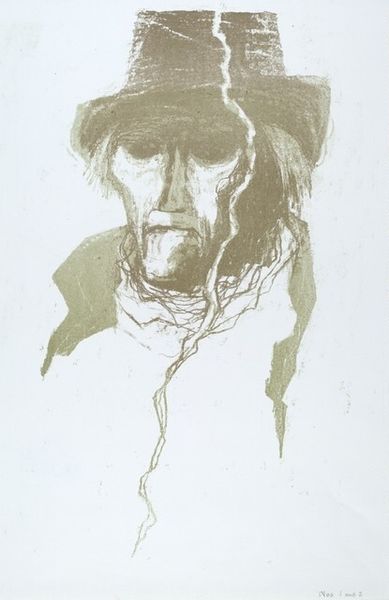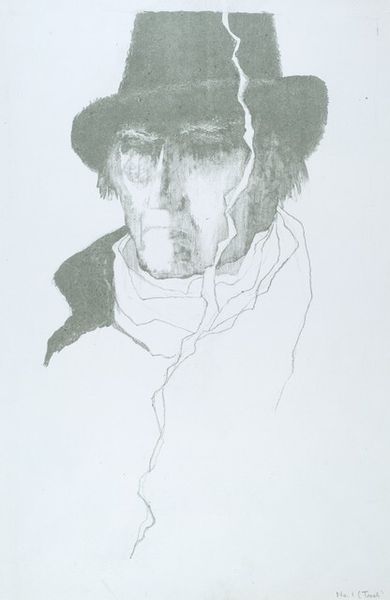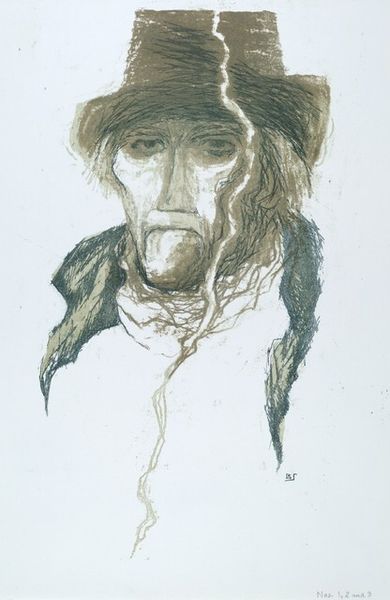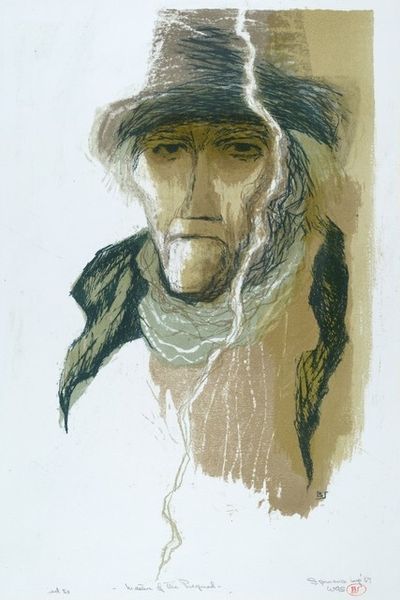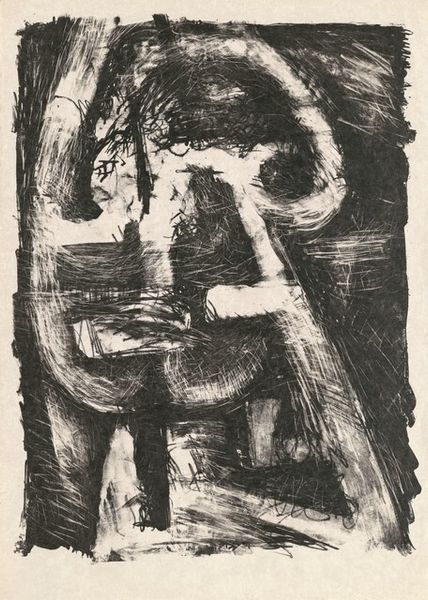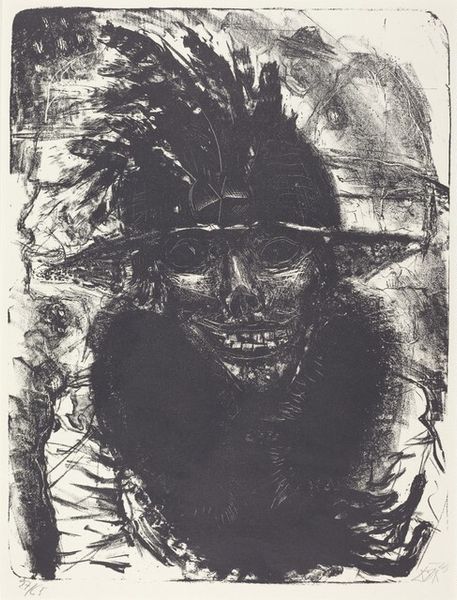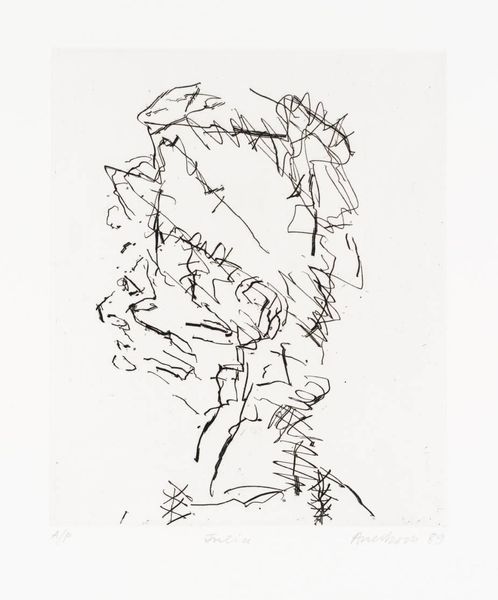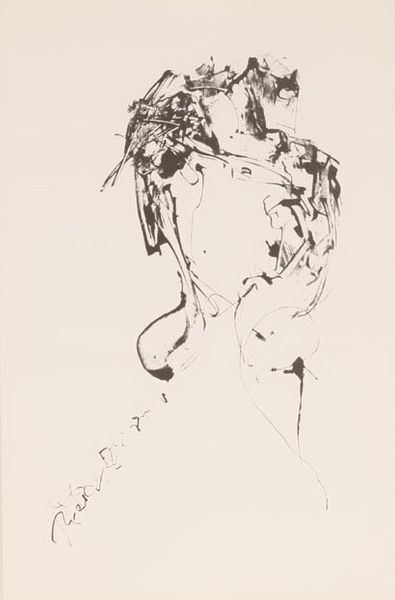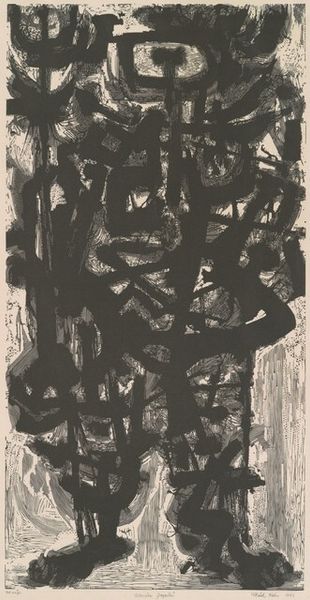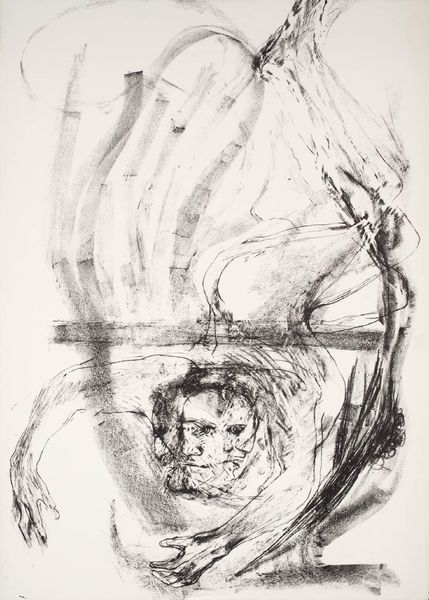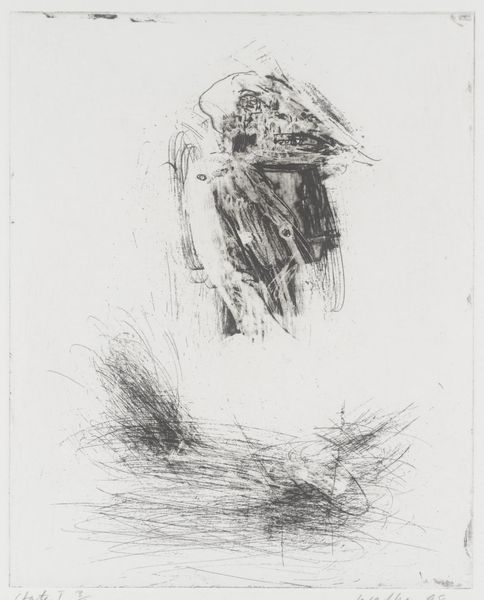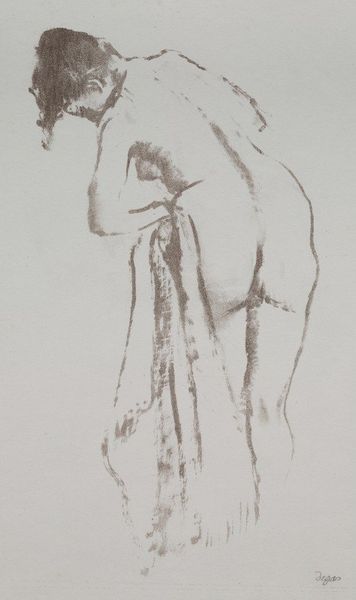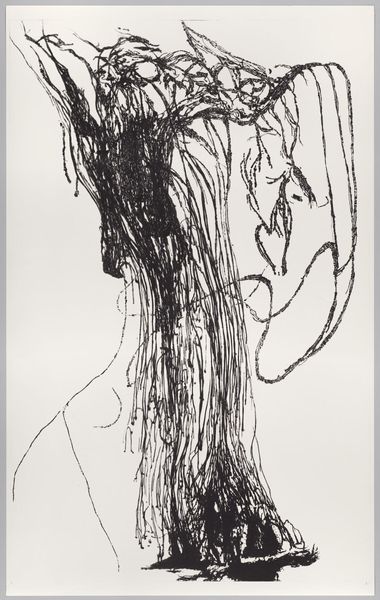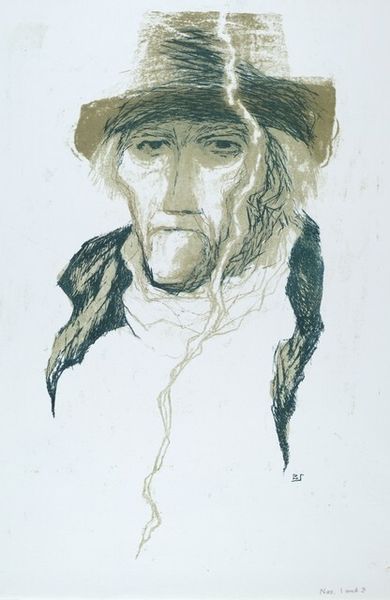
drawing, print, etching, graphite
#
portrait
#
drawing
# print
#
etching
#
graphite
#
portrait drawing
Copyright: National Gallery of Art: CC0 1.0
Curator: Let’s spend a few moments contemplating Benton Spruance's 1967 print, an etching with graphite entitled "Master of the Pequod." Editor: My first thought? A ghost haunting the page. It's so ethereal, barely there, but undeniably present with this intense gaze. Like a half-remembered dream of a sea captain. Curator: The title suggests it's meant to evoke Captain Ahab from Moby Dick. Spruance engaged deeply with literary and social themes; he made a whole series around Melville’s novel. He often addressed powerful figures wrestling with morality and the darker aspects of power. Editor: And you can really feel that struggle. There's something tragic etched into the lines of his face, hidden behind those deep shadows. The hat seems to weigh him down rather than protect. Does the sketchy style amplify that turmoil, maybe? Curator: The medium undoubtedly contributes. The starkness of the etching coupled with the delicate use of graphite gives it an unfinished, almost haunted quality, very appropriate for such a tormented character as Ahab, of course, but for interpretations of leadership beyond the narrative, as well. His choices were always politically charged, from his work during the Great Depression to his commentary on the Civil Rights movement. Editor: You see so much history, whereas I look at it and just feel...lost at sea, emotionally speaking. The downward trajectory of the marks almost drags the figure into the depths. Is there a suggestion of drowning here, perhaps? Curator: Possibly. What interests me is how the artwork invites a contemporary audience to reflect on themes of obsession and the abuse of power. Ahab's single-minded quest for the white whale serves as a cautionary tale about hubris. We have seen that time and time again played out in society and institutions across generations, so while the print depicts a nineteenth century figure, it invites commentary for ages beyond. Editor: Right, so this isn’t just a story about a literary captain; it's a broader exploration about being consumed by our demons and ambitions. Curator: Precisely. Spruance uses this familiar story to dissect power and its consequences. Editor: Looking again, I see not just the ghost of Ahab but also perhaps a mirror of ourselves. We all have a Pequod to captain, don’t we? Curator: An astute point to consider as we move on. Thanks!
Comments
No comments
Be the first to comment and join the conversation on the ultimate creative platform.
